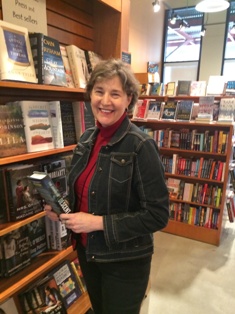 Samuél L. Barrantes grew up in North Carolina and fell in love with Paris, France, where he has lived since 2010. Slim and the Beast (Inkshares, February 3, 2015) is his first novel, the narrator, based on Sam Elliott's cowboy in the The Big Lebowski, recounts the story of the Beast, a college basketball star with a proclivity for cooking; Slim, a disillusioned war veteran with a brutal neck scar; and Sgt. Dykes, a maniac who haunts Lockart's Bar and raves about tragedy and his estranged cadet--Slim.
Samuél L. Barrantes grew up in North Carolina and fell in love with Paris, France, where he has lived since 2010. Slim and the Beast (Inkshares, February 3, 2015) is his first novel, the narrator, based on Sam Elliott's cowboy in the The Big Lebowski, recounts the story of the Beast, a college basketball star with a proclivity for cooking; Slim, a disillusioned war veteran with a brutal neck scar; and Sgt. Dykes, a maniac who haunts Lockart's Bar and raves about tragedy and his estranged cadet--Slim.
On your nightstand now:
I'm always a fan of reading fiction and nonfiction at the same time, and usually have a short paperback that can fit in my pocket for the metro. The rule of three is a great rule in life, so I'm slogging through David Foster Wallace's The Pale King for the second time (on the first attempt I only got through 300 pages). I've just started Christopher Clark's The Sleepwalkers, which has blown a lot of historians' faces off apparently. And I am rereading Steven Pressfield's The War of Art for the fourth or fifth time (I always reread this book before starting a new project).
Favorite book when you were a child:
Shel Silverstein's Falling Up was always a favorite of mine, hence my hilarious second-grade attempt at a book of poetry--Funk Backwards--which made no sense at all either then or now.
Your top five authors:
J.K. Rowling (there, I said it): I have never been more lost in a fictional world than with Harry Potter. David Foster Wallace: his essays are shockingly well written, and even if his fiction takes work, it's the most rewarding I've ever read. Viktor Frankl: his philosophy changed the way I approach the world. Dave Eggers: his journalistic approach to novels changed the way I think about the relationship between fiction and nonfiction. Finally, Gary Larson: I remember being oddly excited to go to the dentist's office as a kid because there were multiple collections of The Far Side in the waiting room.
Book you've faked reading:
I can't say I've ever faked reading a book--it seems silly and obnoxious and sad at the same time. Fake-reading a book defeats the point of reading in the first place, and it makes you feel and look like a jackass in the long run.
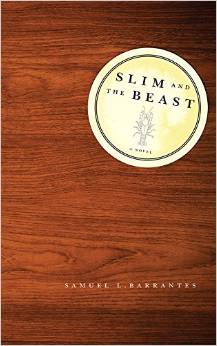 Book you're an evangelist for:
Book you're an evangelist for:
As far as nonfiction goes, Letters to a Young Poet by Rainer Maria Rilke. It's the least pretentious and most human book I've ever read. Also, everyone should read Steven Pressfield's The War of Art. For fiction, it's tough because fiction is so subjective. Michael Chabon's The Amazing Adventures of Kavalier & Clay comes to mind, but I don't think you can evangelize for something that is inherently subjective; that "click" you feel with a great work can only come from the inside.
Book that changed your life:
Brief Interviews with Hideous Men by David Foster Wallace. This was the book that got me into writing, and it helped me realize that philosophy doesn't have to be independent from fiction. Philosophy is simply dialogue (at least according to Plato) and the structure of the "interviews" is genius in my opinion. When he isn't showing off and goading you into reading with a dictionary, there's no comparison for DFW's ability to use prose to reveal something fundamental about the human condition.
Favorite line from a book:
There are far too many, of course--I always read with a pen and put all of my favorite lines in a Word document for reference. I also believe that if you write the same sentences that Steinbeck or Vonnegut first penned--like playing an Oscar Peterson piano solo over and over again--somehow osmosis will get the juices going. In any case, this line from Dave Eggers's A Heartbreaking Work of Staggering Genius has stuck with me throughout the years:
"I like the dark part of the night, after midnight and before four-thirty, when it's hollow, when ceilings are harder and farther away. Then I can breathe, and can think while others are sleeping, in a way can stop time, can have it so--this has always been my dream--so that while everyone else is frozen, I can work busily about them, doing whatever it is that needs to be done, like the elves who make the shoes while children sleep."
Which character you most relate to:
Oh, boy. That's like asking, "What's your favorite song?" I'm going to have to go with Kramer from Seinfeld, and I'll let the reader decide what that suggests. It's true, Seinfeld isn't a book, but it's an interesting assumption that writers most relate to characters in novels. Paintings and songs and all other art have "character," too--there's a painting by René Magritte, for example,called The Empire of Lights that I feel much more connected to than any character in a novel. Since this is about books, however, I'll play ball and say Hans, the protagonist in Andrés Neuman's outstanding Traveler of the Century.
Book you most want to read again for the first time:
Nonfiction: Viktor Frankl's Man's Search for Meaning. I would like to know what life felt like before discovering his theory of "the will to meaning."
Fiction: J.K. Rowling's Harry Potter and the Prisoner of Azkaban. It was in the third book of the series that something shifted for me, when I realized Harry Potter was no longer (and could no longer be) a simplistic fantasy series. I had one of those "Oh, boy, here we go" moments, and that feeling is awesome.
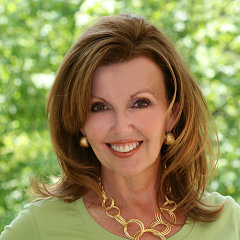 "It was in Oxford, Miss., that it come to me so clearly. I knew it, of course. I had known it since I was a child skirted in gingham innocence and trimmed with inexperience.... A recent sojourn to the small towns of Greenwood and Oxford, reminded me strongly and clearly of the joy of bookstores for these two places have excellent independents. In Greenwood, you'll find the amazing Turnrow and in Oxford, you can shop all day at Square Books and its two offshoots--Off Square and Square, Jr.
"It was in Oxford, Miss., that it come to me so clearly. I knew it, of course. I had known it since I was a child skirted in gingham innocence and trimmed with inexperience.... A recent sojourn to the small towns of Greenwood and Oxford, reminded me strongly and clearly of the joy of bookstores for these two places have excellent independents. In Greenwood, you'll find the amazing Turnrow and in Oxford, you can shop all day at Square Books and its two offshoots--Off Square and Square, Jr.


SHELFAWARENESS.1222.S1.BESTADSWEBINAR.gif)


SHELFAWARENESS.1222.T1.BESTADSWEBINAR.gif)
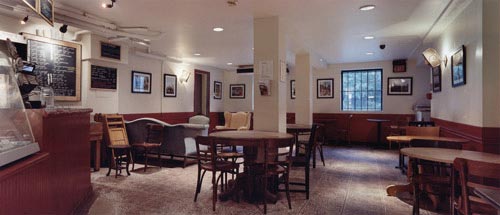
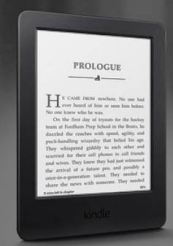 The European Court of Justice ruled yesterday that for tax purposes
The European Court of Justice ruled yesterday that for tax purposes 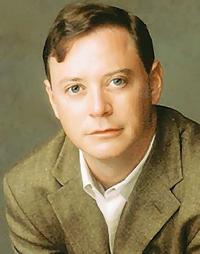
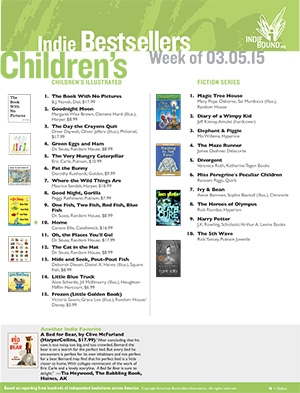 Effective with this week's National Indie Bestseller List, the list formerly titled "Children's Interest"
Effective with this week's National Indie Bestseller List, the list formerly titled "Children's Interest" 
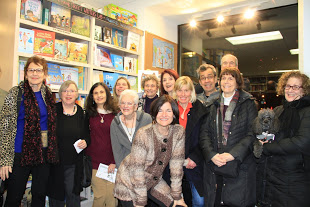
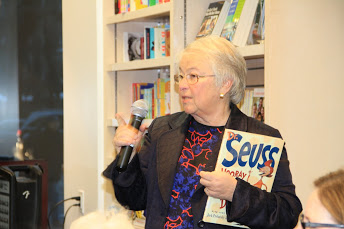
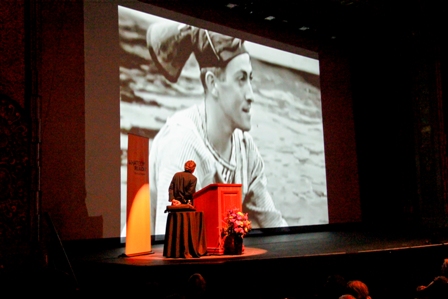 Daniel James Brown, author of The Boys in the Boat, was the featured author for the 2015
Daniel James Brown, author of The Boys in the Boat, was the featured author for the 2015 
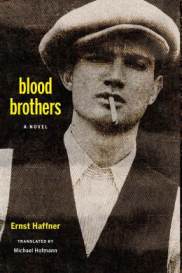 Originally published in 1932 and then suppressed a year later by the Nazis, Blood Brothers became a surprise international hit when it was republished in Germany in 2013. The GBO said, "Told in stark, unsparing detail, Haffner's story deftly narrates how the blood brothers move from one petty crime to the next in a desperate bid to survive. They spend their nights in underground bars and makeshift hostels, struggling together to live on despite the harsh realities of gang life, and all the while trying to maintain some kind of moral code. They find in one another the legitimacy that greater society denies them, as they chase the evasive joy of a warm meal or cigarette through monotonous days and debaucherous nights. As well as painting a portrait of the very specific experiences of young men in Berlin prior to World War II, the novel takes a surprisingly contemporary critical look at the impact of the city on the individual, the inescapable effects of poverty, and the inadequacies of the legal system."
Originally published in 1932 and then suppressed a year later by the Nazis, Blood Brothers became a surprise international hit when it was republished in Germany in 2013. The GBO said, "Told in stark, unsparing detail, Haffner's story deftly narrates how the blood brothers move from one petty crime to the next in a desperate bid to survive. They spend their nights in underground bars and makeshift hostels, struggling together to live on despite the harsh realities of gang life, and all the while trying to maintain some kind of moral code. They find in one another the legitimacy that greater society denies them, as they chase the evasive joy of a warm meal or cigarette through monotonous days and debaucherous nights. As well as painting a portrait of the very specific experiences of young men in Berlin prior to World War II, the novel takes a surprisingly contemporary critical look at the impact of the city on the individual, the inescapable effects of poverty, and the inadequacies of the legal system."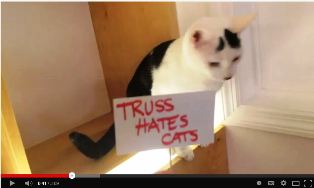 Cat Out of Hell: A Novel
Cat Out of Hell: A Novel A weekly series of classic noir movies based on books is currently running at the
A weekly series of classic noir movies based on books is currently running at the  Two years later, Riehl and Michigan Theater senior programmer Brian Hunter created Noir: Seventeen Stories of Sex, Suspense and Murder. "We're excited to offer this series and hope to give viewers the opportunity to step back in time and see these classic films in the setting they were originally shown, a real movie house," said Hunter. "Nicola's partnership offers a great way for film goers to appreciate the original source from which the screenplay was adapted."
Two years later, Riehl and Michigan Theater senior programmer Brian Hunter created Noir: Seventeen Stories of Sex, Suspense and Murder. "We're excited to offer this series and hope to give viewers the opportunity to step back in time and see these classic films in the setting they were originally shown, a real movie house," said Hunter. "Nicola's partnership offers a great way for film goers to appreciate the original source from which the screenplay was adapted." Samuél L. Barrantes
Samuél L. Barrantes Book you're an evangelist for:
Book you're an evangelist for: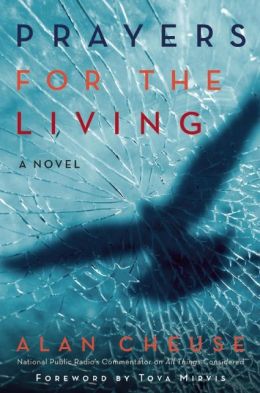 The new publishing house Fig Tree Books, whose stated mission is to "chronicle and enlighten the unique American Jewish Experience," has revised and reissued NPR critic
The new publishing house Fig Tree Books, whose stated mission is to "chronicle and enlighten the unique American Jewish Experience," has revised and reissued NPR critic 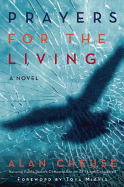
 Perhaps that blind tumble into booksellerdom is why I loved a Help Wanted notice that hit my e-mail inbox Wednesday. It was part of an e-newsletter from the
Perhaps that blind tumble into booksellerdom is why I loved a Help Wanted notice that hit my e-mail inbox Wednesday. It was part of an e-newsletter from the 